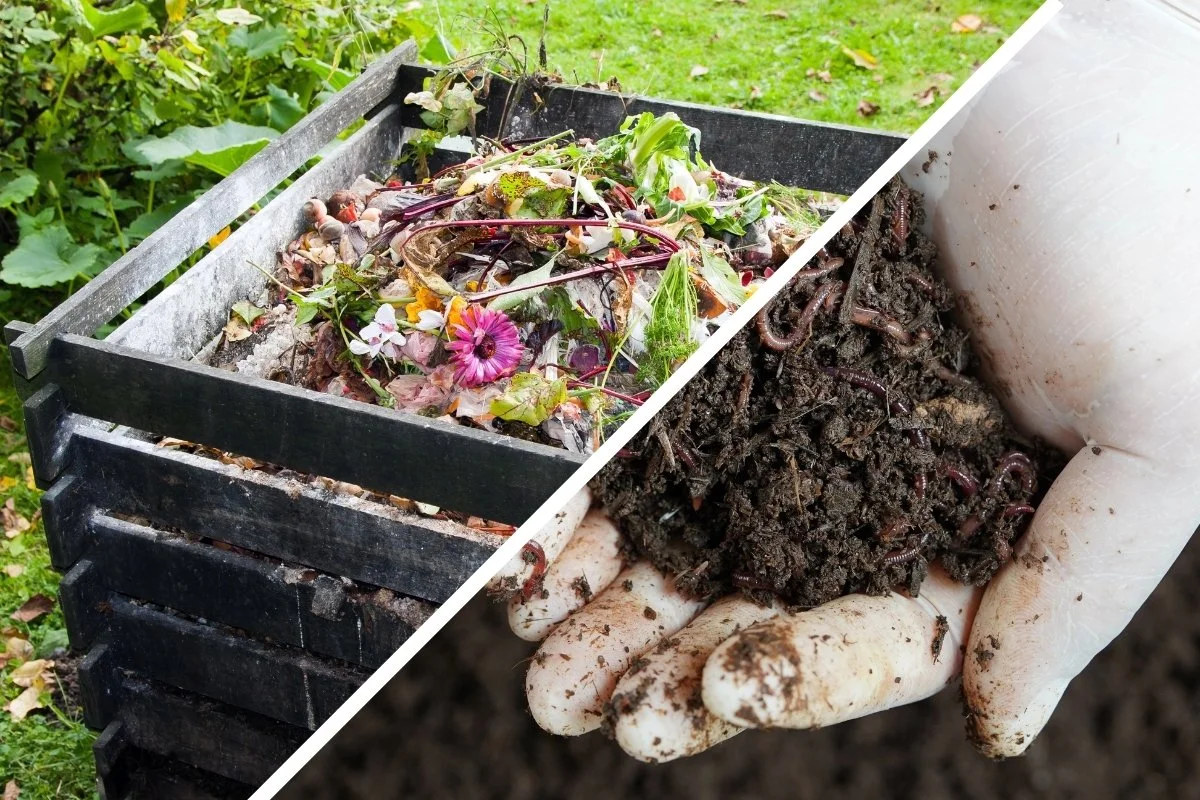If you’re passionate about growing healthy plants—or even just trying to keep your tomatoes alive—you’ve probably heard about worm castings and compost. They’re both natural, organic ways to improve your soil… but are they the same thing? Not quite.
While they might look similar at first glance, worm castings and compost serve different purposes in your garden. And when used together, they can do some serious magic for your soil.
Let’s break down what makes them different, when to use each one, and how they can work together to grow thriving, resilient plants.
What Are Worm Castings?
Worm castings are, well… worm poop. Yep, you read that right. But don’t let that gross you out—this stuff is garden gold.
As worms digest organic materials like food scraps, leaves, and compost, they break it all down in their tiny wormy digestive systems and leave behind castings. The result? A fine, dark, crumbly material that’s absolutely loaded with nutrients, beneficial microbes, and enzymes that plants love.
Worm castings are gentle, odor-free, and packed with the kind of slow-release nutrients your plants can easily absorb. Gardeners often call it “black gold” because a little goes a long way—and the results speak for themselves.
What Is Compost?
Compost is a little more familiar to most people. It’s made from decomposed kitchen scraps, yard waste, and other organic materials that break down over time—usually with the help of microbes, oxygen, and heat.
The final product is a rich, dark material that smells like fresh earth and helps improve your soil’s texture, water retention, and overall health. Compost is a fantastic way to recycle organic waste and build long-term soil fertility.
But while compost is great for soil structure and bulk organic matter, it doesn’t pack the same microbial punch or nutrient concentration as worm castings.
Worm Castings vs Compost: Side-by-Side
Here’s an easy comparison to help you see the key differences:
Worm Castings
- Created by composting worms
- Higher in plant-available nutrients
- Packed with beneficial microbes
- Safe for seedlings—won’t burn roots
- Best for seed starting, top dressing, compost tea
Compost
- Made through aerobic microbial decomposition
- Rich in organic matter, but less concentrated
- Improves soil texture and water retention
- Great for raised beds, garden plots, and mulching
- Ideal for building bulk soil fertility over time
When Should You Use Worm Castings?
Worm castings are best when you want to give your plants a direct nutrient boost or improve microbial activity in your soil. They’re perfect for:
- Starting seeds or transplanting
- Sprinkling around the base of veggies or flowers
- Brewing into compost tea
- Mixing into indoor potting mixes
- Reviving tired or nutrient-starved soil
Because they’re so rich and concentrated, you don’t need much—just a small handful can make a big impact.
When Is Compost the Better Choice?
Think of compost as the foundation for your soil. It’s ideal for:
- Filling raised beds and large garden plots
- Mixing into native soil to improve texture and drainage
- Mulching around plants
- Bulk soil improvement over time
It’s not as concentrated as worm castings, but it adds valuable organic matter and supports a healthy soil ecosystem over the long run.
Can You Use Both Together?
Yes—and you absolutely should! Worm castings and compost work beautifully as a team.
Start by using compost to build up your soil base. Then, layer in worm castings for a potent boost of nutrients and living microbes. It’s like feeding your soil a healthy diet and then giving it a daily multivitamin.
Try this approach:
- Use compost in bulk when prepping your beds
- Add worm castings when planting or as a monthly top-dress around your plants
Final Thoughts: Compost Builds. Worm Castings Supercharge.
So, which one should you use? Honestly—both.
Compost builds the structure and long-term health of your soil. Worm castings supercharge it with nutrients and microbes that help plants thrive.
Together, they create a living, breathing, fertile soil that supports stronger roots, more flowers, and tastier veggies. Whether you’re just getting started or you’ve been gardening for years, combining compost with worm castings is a simple, natural way to grow better.
Ready to give worm castings a try?
Shop now from Colorado Worm Farm and give your plants the boost they deserve—naturally.
